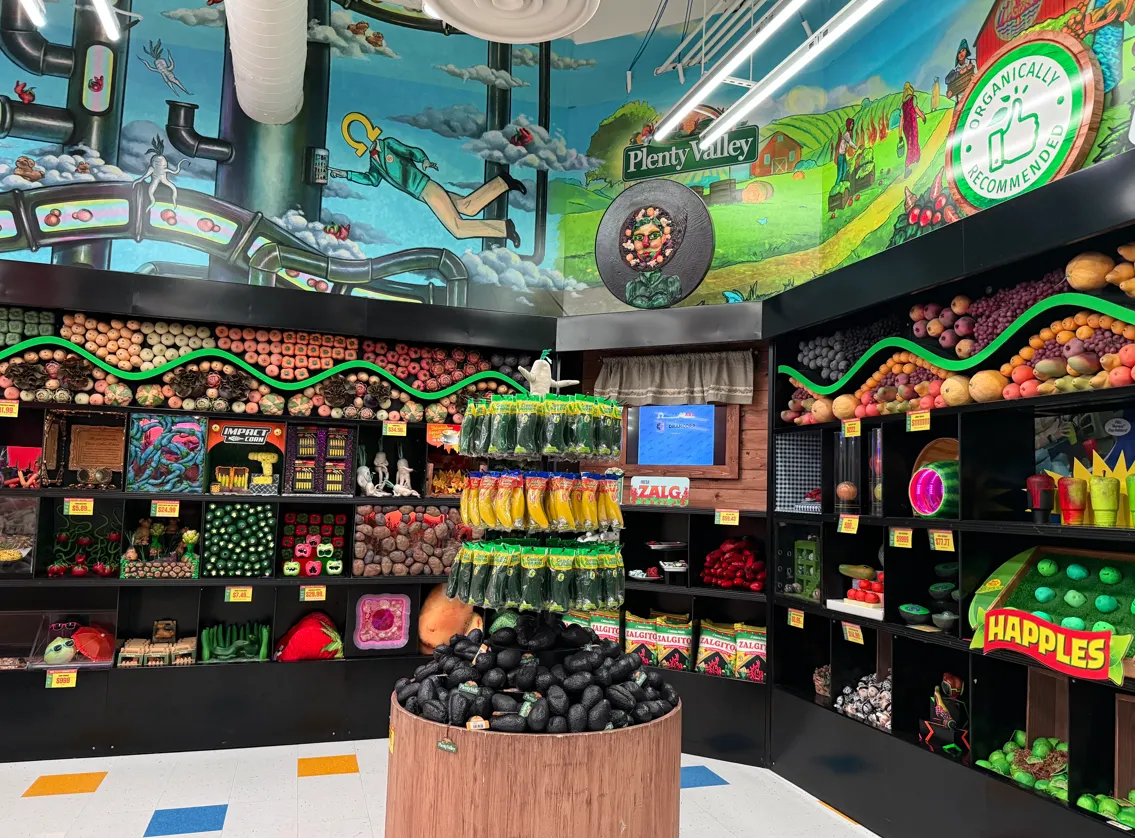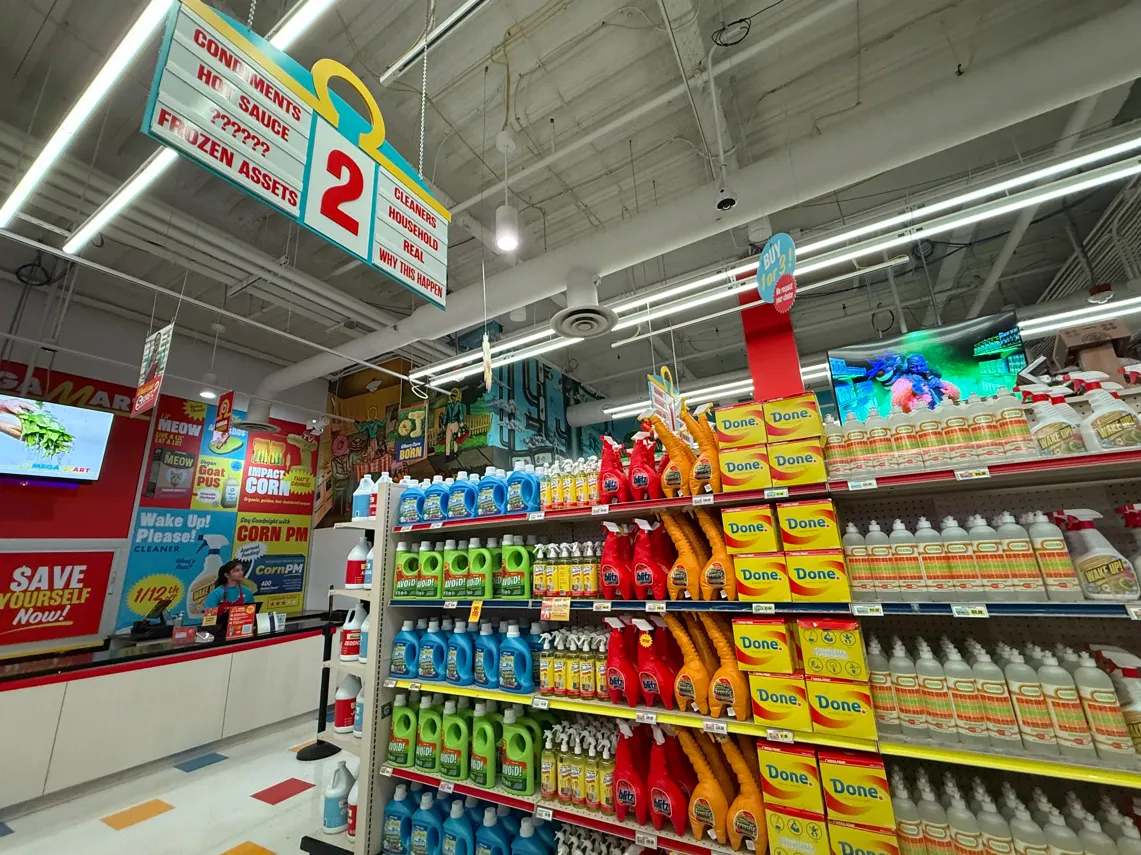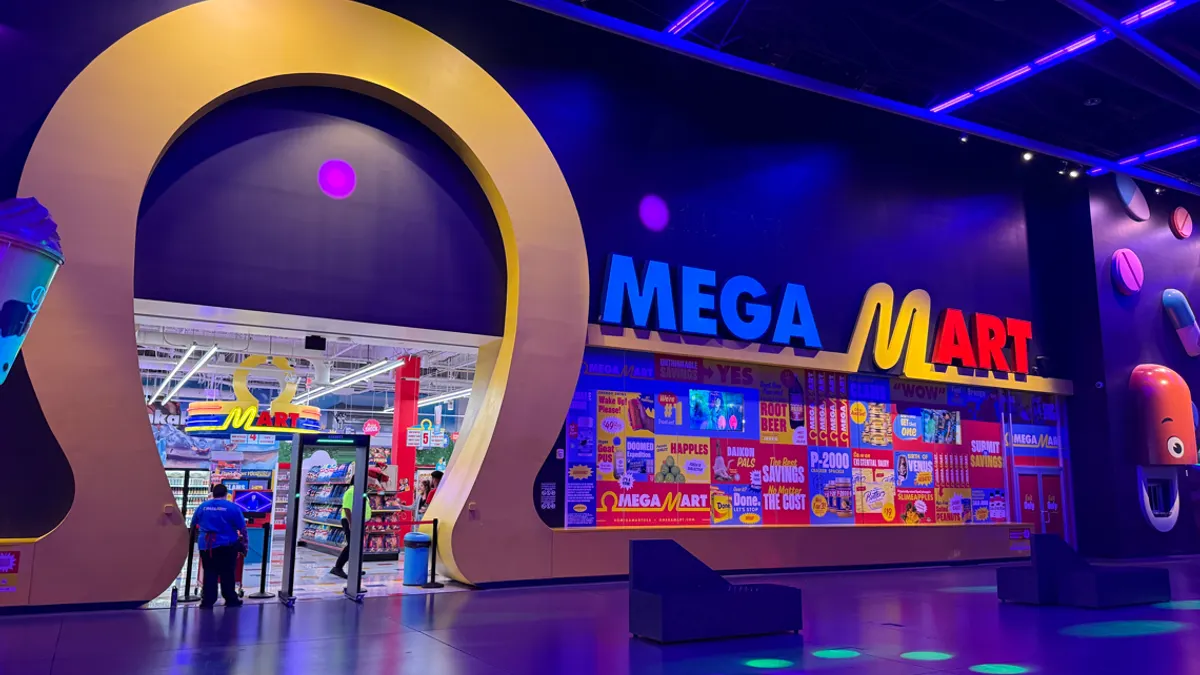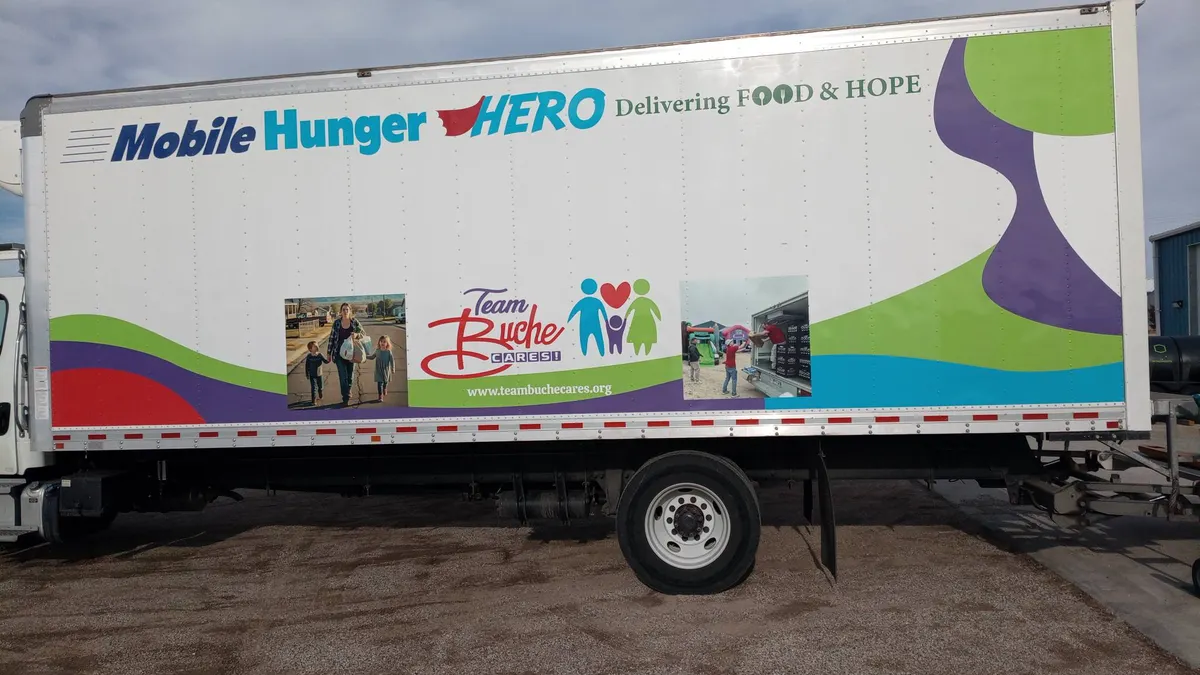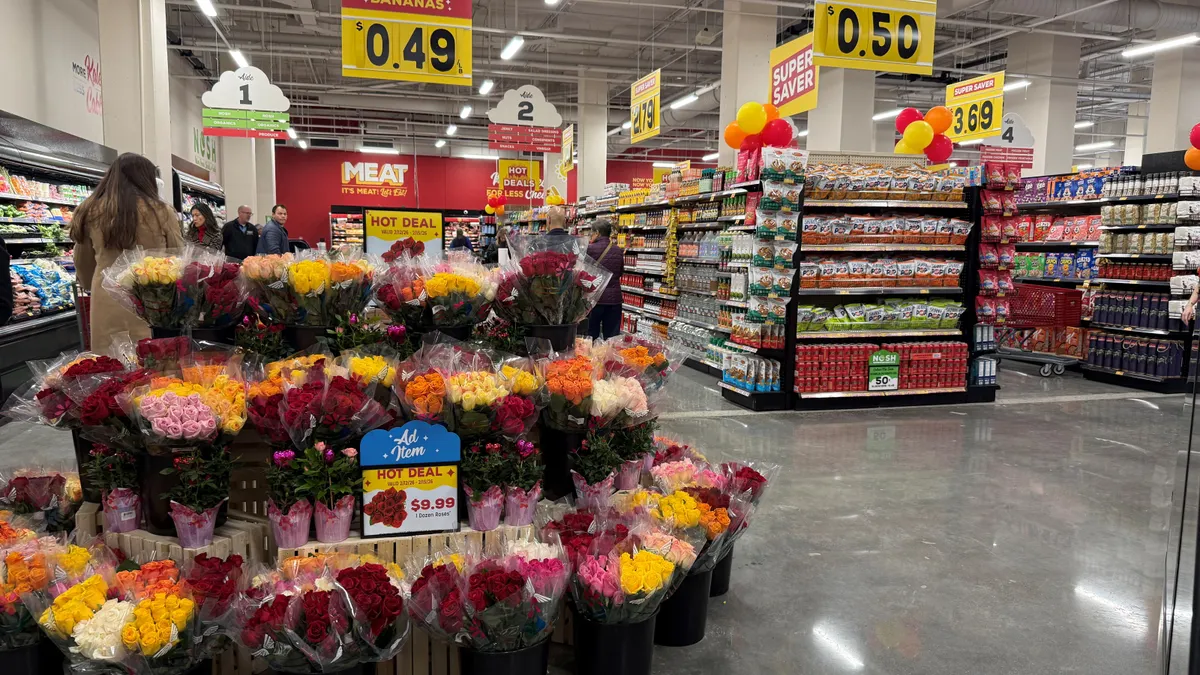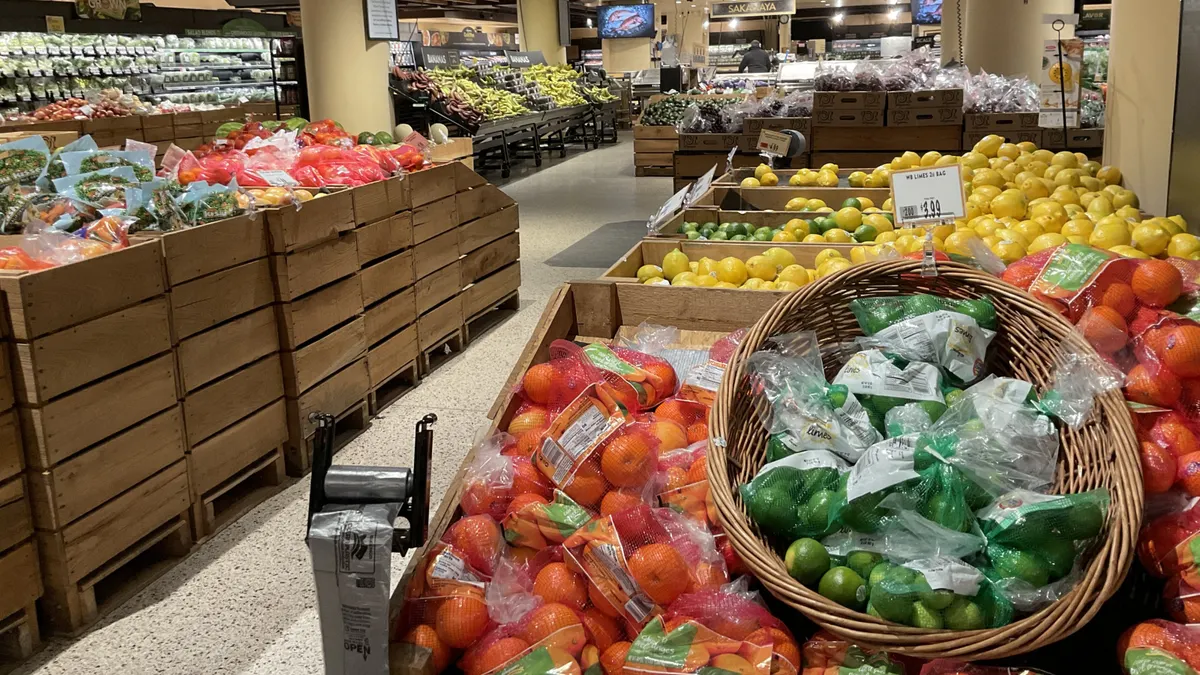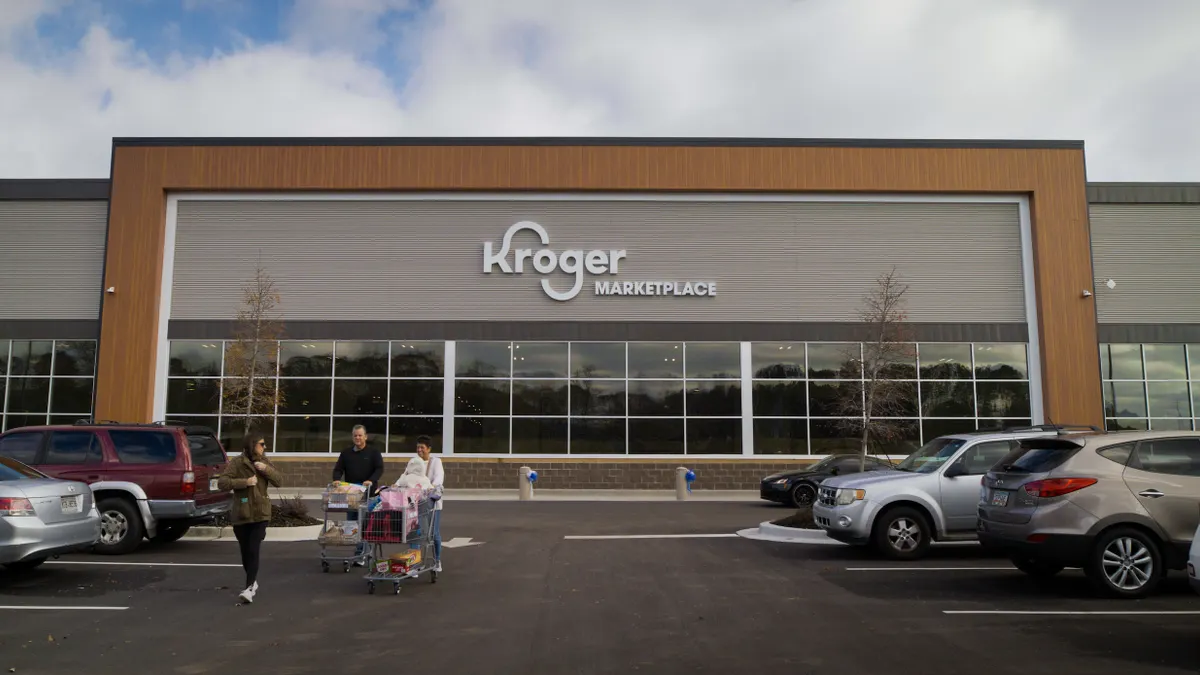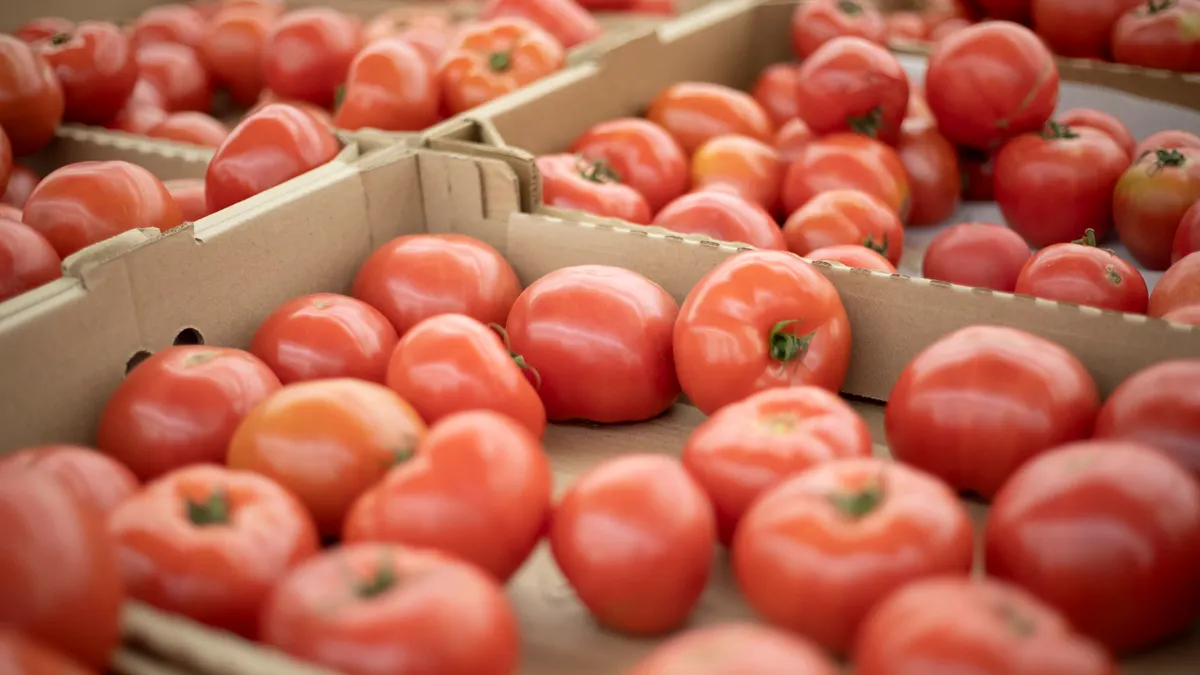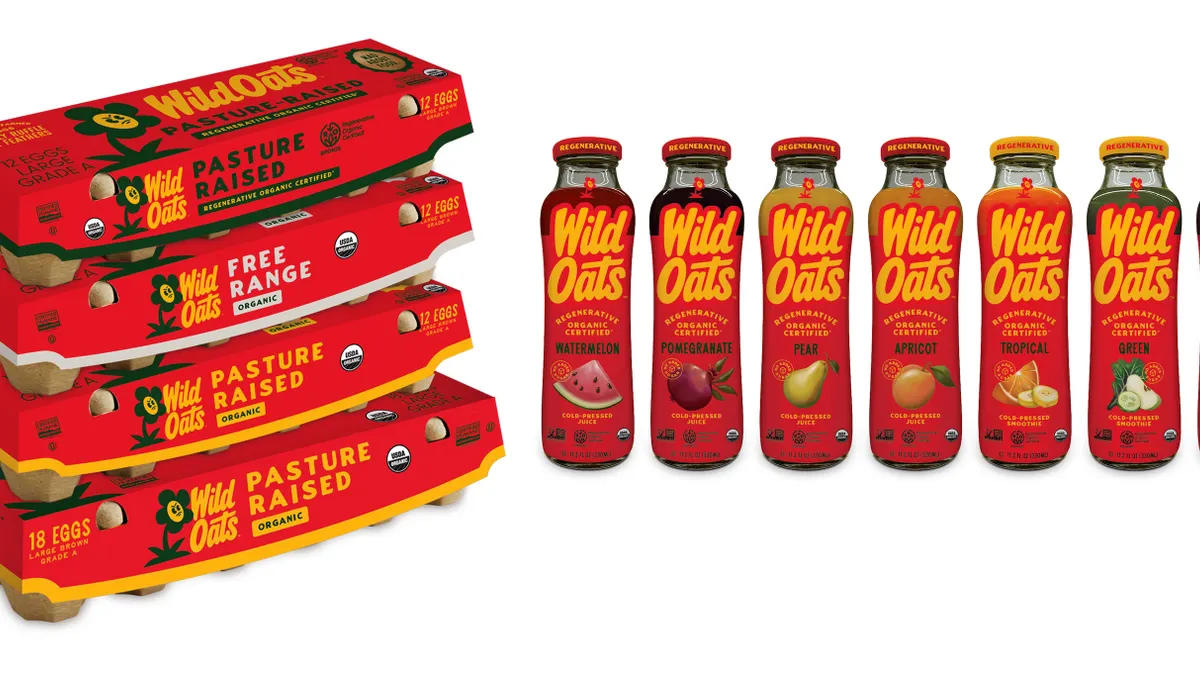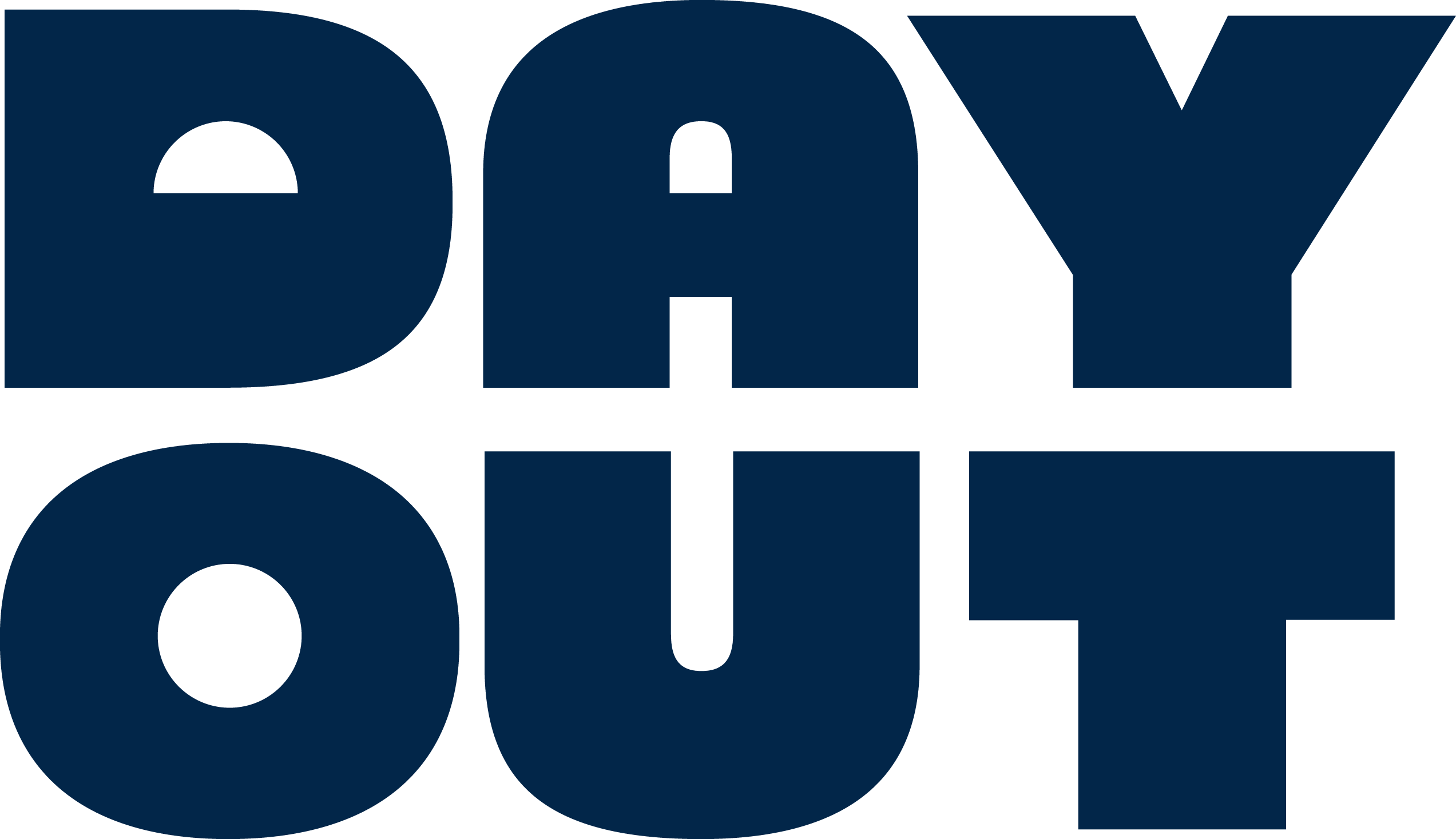LAS VEGAS — Naturally boneless avocados, tattoo chicken and moon water are just a few of the items “on sale” at Omega Mart, a fake grocery store that is part of immersive art company Meow Wolf’s larger art installation in Las Vegas.
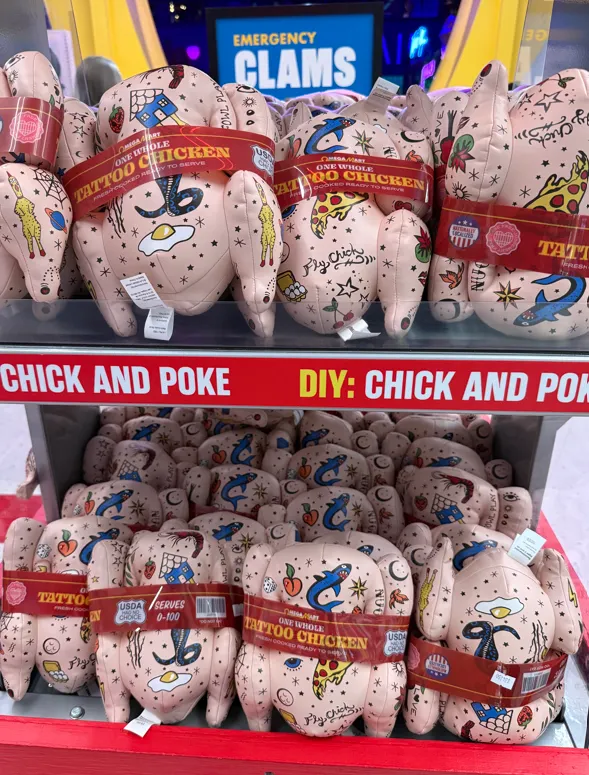
Being the grocery nerd that I am, I knew I had to check out Omega Mart during my trip to Sin City last week for Groceryshop. Omega Mart did not disappoint. The “store” is decked out with fake private label goods, spoofs on national brands like L’Omega sparkling water and Dozito’s chips, and even staff donned in aprons and pretending to stock the shelves.
The storefront is only a portion of the art installation’s experience — behind a fake freezer door, there’s a labyrinth of rooms that I got to explore, ranging from colorful floral decor to a spy-esque corporate office with plenty of seating and activities to entertain visitors for hours.
I found the setup hilarious: To explore these mind-bending rooms, people must enter — and exit — through the grocery store facade. Before going to the art installation, I expected Omega Mart to parody the grocery shopping experience. I wasn’t expecting the absurdist alter reality store to be such a fever dream and fodder for commentary about the nightmarish aspects of shopping for ingredients.
Art is subjective, so here are my takes on why Omega Mart is a warning to grocers about how experiential retailing can spiral into a nightmare.
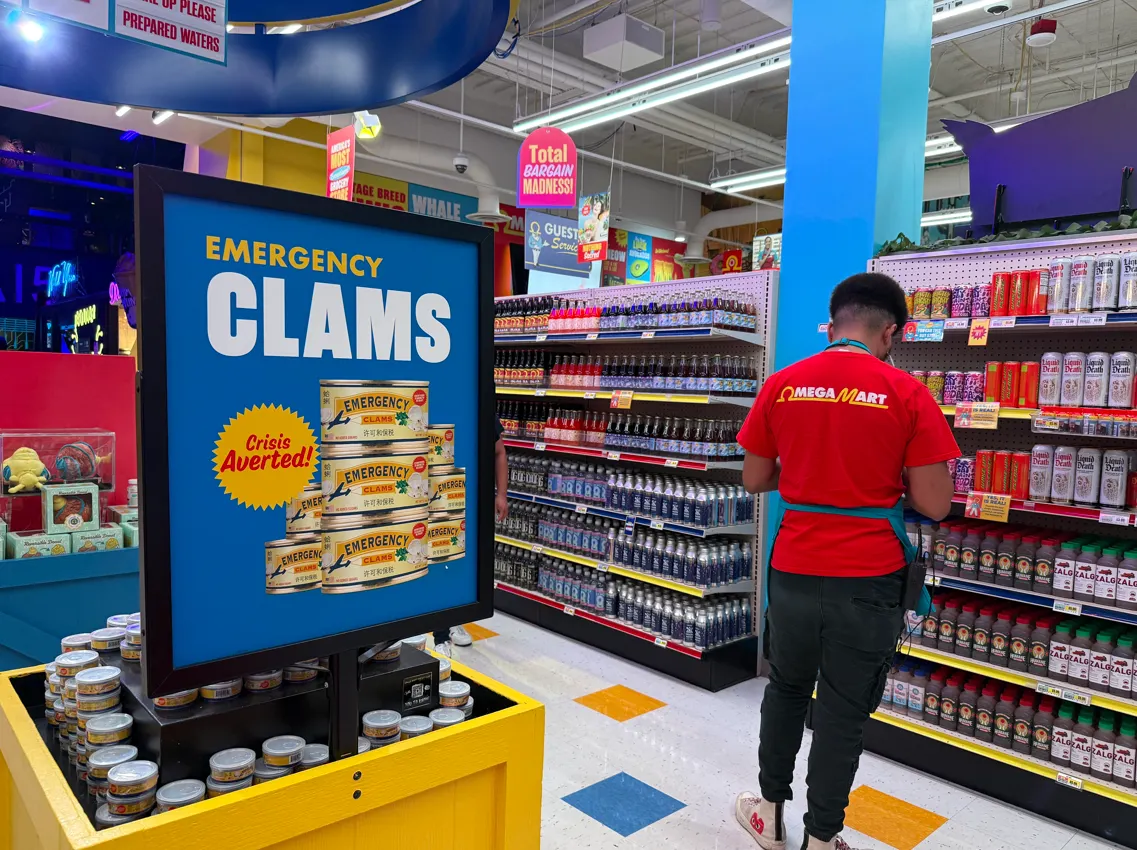
When grocery shopping goes awry
Walking through the aisles of Omega Mart, I found myself chuckling at how the absurdity was spot-on, like some of the shelf labels saying, “Price shock.”
One of my favorite things to do when I see marketing language is to invert it: “farm-fresh produce” becomes “rotten produce,” while “convenient delivery” becomes “inconvenient service.” So I found the “Price shock” label refreshing and a key example of how Omega Mart seemingly mocks insincerity.
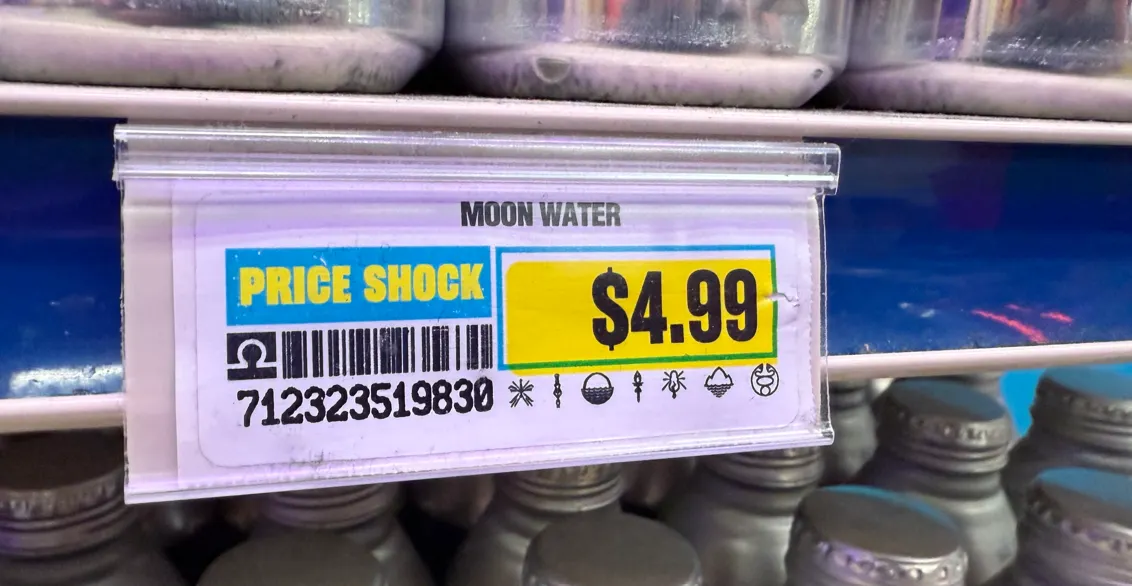
There are even fake videos for workers in the store about “living the Dram” through “ascended management” to get worker buy-in on company initiatives.
Omega Mart is also hilarious because of the potshots it takes at how confusing merchandising can be. The cans of “nut-free salted peanuts,” aisle tags that just say “Why?” and “Naturally Boneless” shelf labels for items that obviously wouldn’t have bones, like all-purpose cleaner, especially cracked me up.
I found myself bemused by the assortment, from cubed peas in a can to slimeapples. The questions that popped into my head at Omega Mart were similar to ones that I have had while actually grocery shopping: “How many types of peas does a retailer need to have?” “This looks cool, but what do I even use it for?” “What does this vague label mean?”
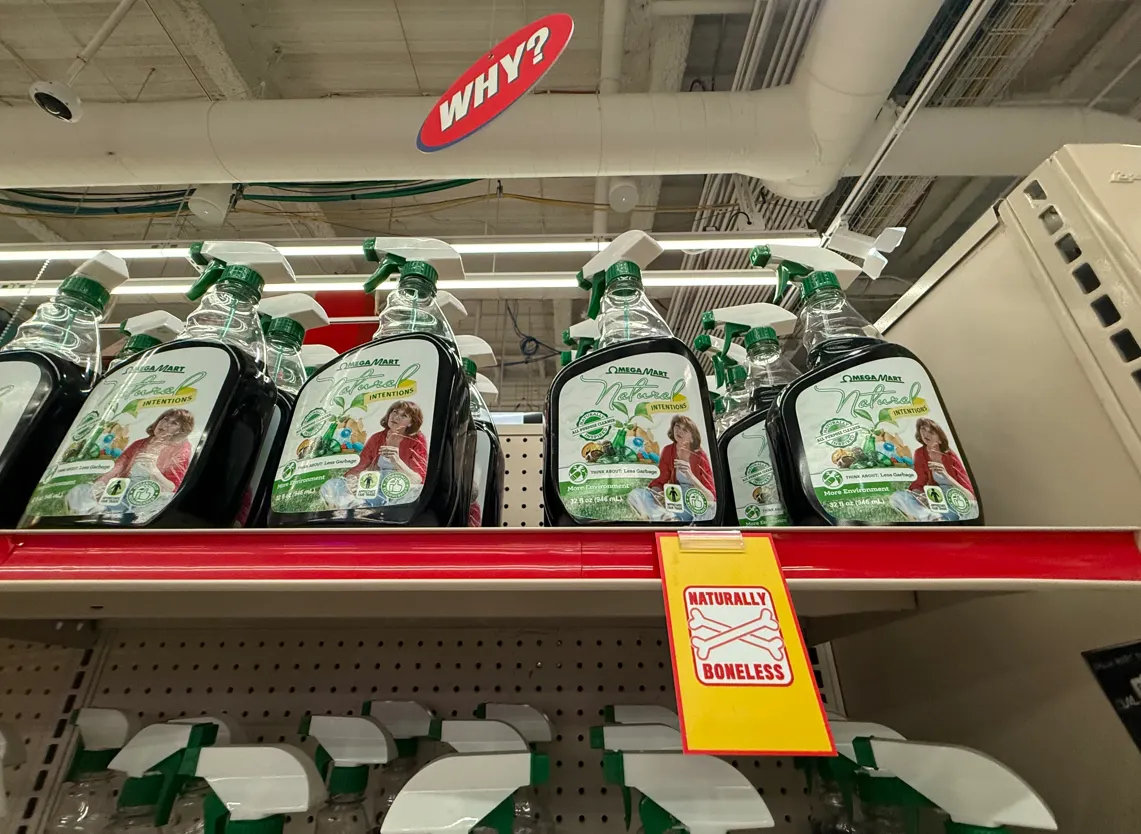
While Omega Mart revels in this trippy experience, grocers should make sure that they are clearing up confusion for their consumers and providing concise and honest merchandising. Omega Mart is intended to be provocative, but customers — who can oftentimes view grocery shopping as a chore — want their visits to the supermarket to be straightforward, meaning that grocers need to be mindful about their retail experiences.
Omega Mart’s absurdity was entertaining, especially with the wacky items on it shelves, but also a reminder that theatrics aren’t always what people want. Product innovation can be fun, but nobody wants to actually buy a rotisserie chicken that’s covered in tattoos, after all.
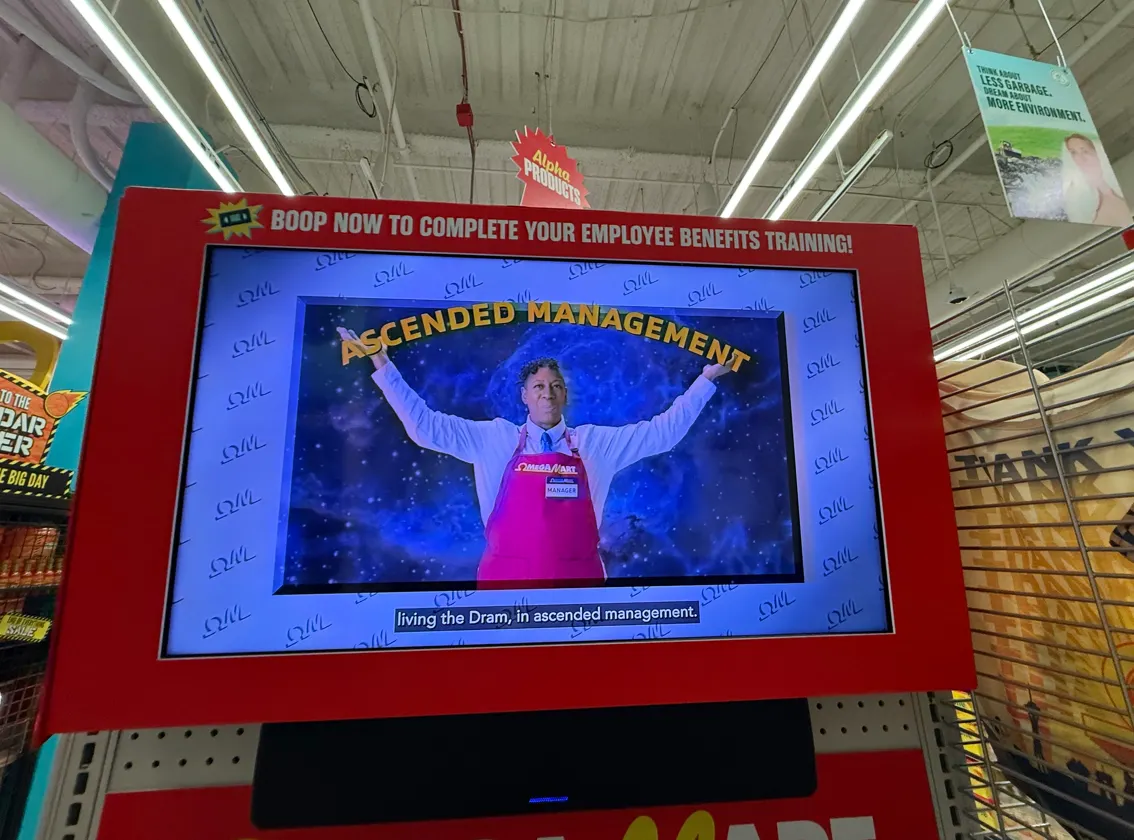
Art imitating life?
As grocers venture further into food-as-medicine and healthcare initiatives, Omega Mart is a cautionary tale.
Inside Omega Mart, there’s a Dramcorp Spiralcuff Health Metrics machine that didn’t appear to work on purpose and a Pharma to Table department, a fake pharmacy that is actually a bar.
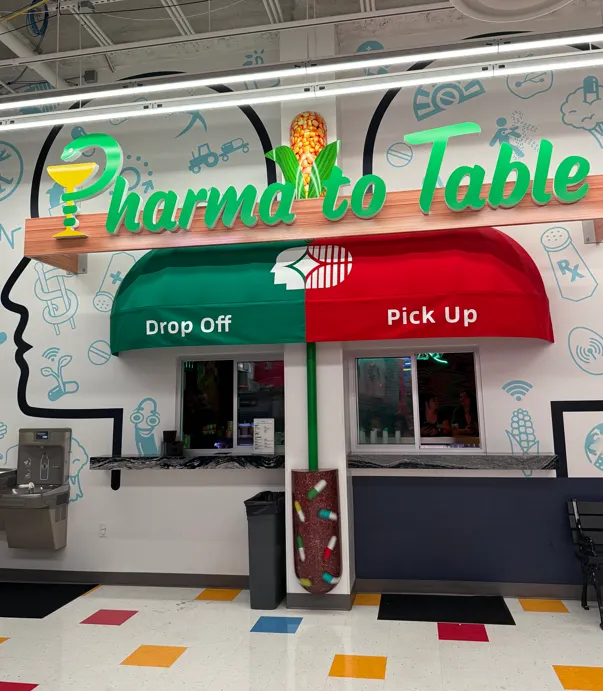
In some of the rooms behind the freezer door, visitors can find videos about Dramcorp, the fictional company behind Omega Mart, that discuss the company’s journey from being an “upstart supermarket to corporate powerhouse.” One such video includes vague and sketchy-sounding references to Dramcorp’s biotechnology initiatives, including Additive S, to boost products’ appeal to consumers.
“Will you be ready to embrace a new plane of existence?” one video says.
All this “information” about the grocery operator is hazy and dubious, but noteworthy to me because Omega Mart is more than a fake supermarket. It is also a commentary on how some companies are stretching beyond traditional grocery retailing to not only offer more services to customers, but even transcend retail by tugging on emotional and spiritual heartstrings.
From the tongue-in-cheek pharmacy that’s actually a bar to the corporate existentialism, Omega Mart is a reminder that grocers should continue to focus on offering services that work and products that consumers want, with authenticity at the core of their marketing.
